INTRODUCTION TO UZUME MESHI
Uzume meshi is a traditional Japanese food in Shimane prefecture and is one of Japan’s five great rice dishes. Its unique characteristic is that all of its ingredients are all hidden under the rice. Japanese have been fond of rice dishes ever since a long time ago. They acknowledge rice as a sacred essence because it is an essential element in making up their whole culture. Japanese have this title of the five (5) great rice dishes or cuisines in their country.
There are five (5) prefectures involve here; Tokyo, Osaka, Saitama, Gifu, and Shimane. In Tokyo, they called their meshi or rice dish “Fukagawa-meshi.” In Osaka, they have “Kayakumeshi” as their representative rice dish. In Saitama, “Chushichimeshi” and in Gifu prefecture, “Sayori meshi.” In Shimane prefecture, Izumo soba is also one of the prefecture’s representative dishes. But now, we will learn the last great rice dish (日本五大名飯) in Shimane prefecture known as “Uzume meshi.”
ETYMOLOGY
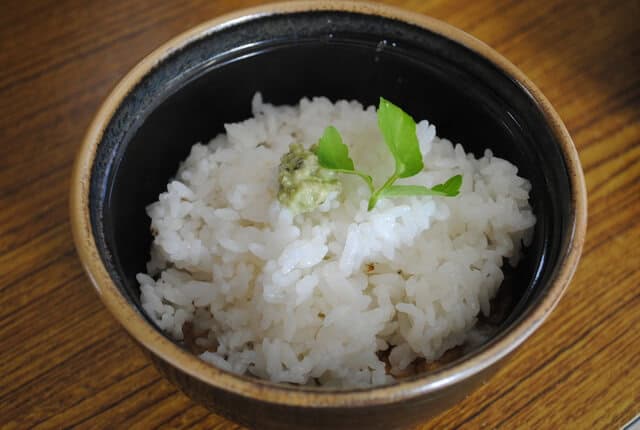
Uzume meshi has two words, thus, it uses Uzume and meshi are to form this dish. “Uzume” has the meaning of (うすめる/埋める) “Uzumeru” consequently means to bury or to fill in. Meshi (めし) is meal or cooked-rice, and often in its hiragana form (メシ). Therefore, as the name suggests, the dish’s most significant feature is that they have to bury the ingredients under the rice.
WHAT IS UZUME MESHI?
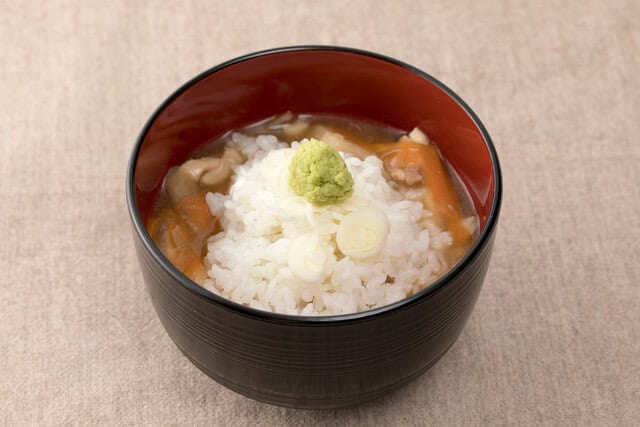
Uzume meshi is a traditional Japanese food in Shimane prefecture. It is one of Japan’s five great rice dishes (日本五大名飯), along with “Fukagawa-meshi” in Tokyo. You can write it as Uzume rice or Uzume meshi. At first, if you glance at it, it looks like Ochazuke, just with soup stock and wasabi. But, it has a different charm from Ochazuke. Many ingredients are hiding under the rice, such as tiny chopped Thai and vegetables. It is a delicious local dish that surprises those who eat it for the first time.
Customers have it serve as a dinner to warm up in the cold winter and as a hospitality dish for a New Year’s event called “Spring Kagura” to worship the local Ujigami. Currently, you can enjoy it as a local gourmet at tourist facilities throughout the year.
UZUME MESHI HISTORY
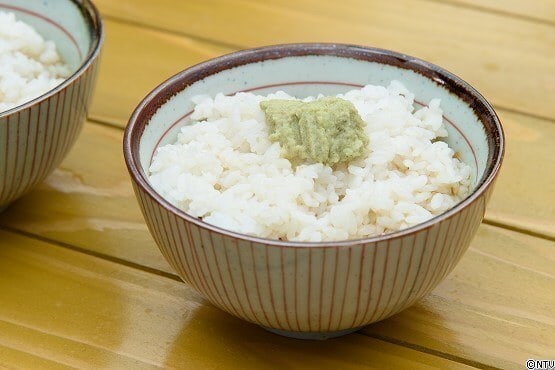
So what is the history of Uzume meshi? How did the unique way of filling rice with ingredients begin? There are various theories about the origin of Uzume meshi. For example, in the Edo period, to hide the luxuries and extravagance in people, they have to act as frugal as possible. And so, they were embarrassed to be seen by others eating it because the dish’s ingredients were inferior. There is also a custom of lowering one’s eyes when serving or eating.
In Yamaguchi Prefecture, they also have similar dishes, which became a hand-down culture following the Buddhist faith. Some people say that they did not use animal ingredients at first.
UZUME MESHI RECIPE
Uzume meshi recipes are carrots, kamaboko, Takano tofu, shiitake, burdock, light soy sauce. It is a dish where you can put rice on it and adding wasabi, trefoil, chopped seaweed as condiments. You can sprinkle hot soup stock on it.
HOW TO MAKE UZUME MESHI?
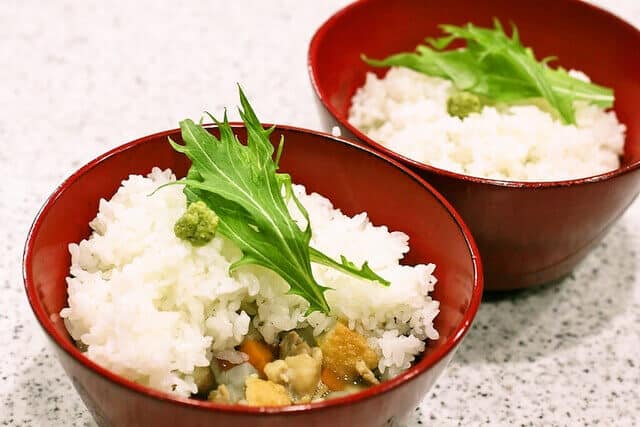
So now we know what the recipes of Uzume meshi are, we can now prepare and make it. Firstly, prepare vegetable scraps and take a thick soup stock from kelp and bonito and strain it. Secondly, while taking the soup stock, chop the carrots and tofu into small pieces. Then, cut the tofu into cubes of about 1 cm. Next, add the carrots, shiitake mushrooms, and tofu to the soup stock and simmer.
Afterward, you can season it with sake and soy sauce. Put the rice in the bowl. And lastly, pour your favorite amount of soup and ingredients into it, and add chopped seaweed and wasabi as condiments. Wasabi adds a lovely accent to the light and simple taste of rice. As you continue to eat, the ingredients come out from the rice, and the color increases.
DIFFERENCE BETWEEN THE JAPAN’S 5 GREAT RICE DISHES
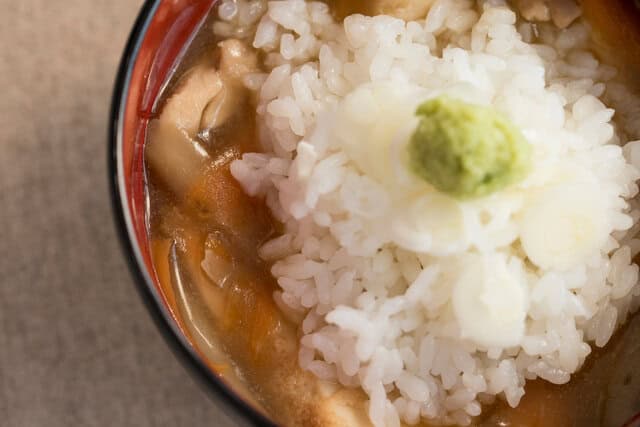
Accordingly, Japan has five (5) great rice dishes or cuisines in their country. There are five (5) prefectures involve here; Tokyo, Osaka, Saitama, Gifu, and Shimane. In Tokyo, they called their meshi or rice dish “Fukagawa-meshi. Fukagawa-meshi is a bowl-rice cook with clams. In Osaka, they have “Kayakumeshi” as their representative rice dish. It is a soup mix with bonito and dry kelp extracts to cook rice, carrots, burdock, and fried tofu.
In Saitama, “Chushichimeshi” is serve with green onions, wasabi, and Japanese citron on rice to pour bonito soup in an earthenware teapot. While in Gifu prefecture, “Sayori meshi” is a rice dish cook with Sanma, ginkgo nuts, and other ingredients. Lastly, Uzume meshi in Shimane prefecture is a dish in which the ingredients are hiding under the rice, such as tiny chopped vegetables.
OCHAZUKE VS. UZUME MESHI
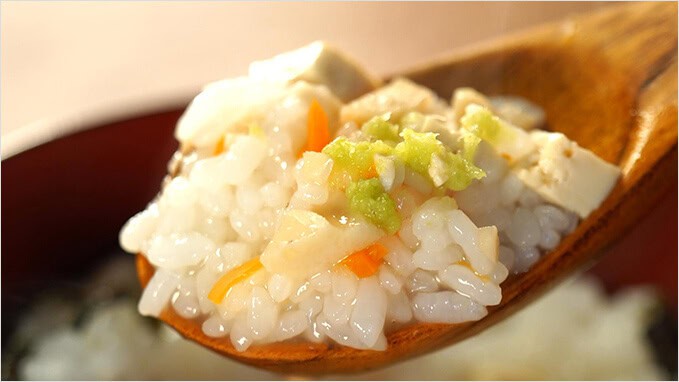
At first glance, you can tell that Uzume meshi looks like Ochazuke. But, if you look at it properly, there’s a difference between them. Uzume meshi is with soup stock and wasabi. It has a different charm from Ochazuke. Many ingredients are hiding under the rice, such as tiny chopped vegetables.
WHAT IS WASABI MADE OF IN JAPAN?
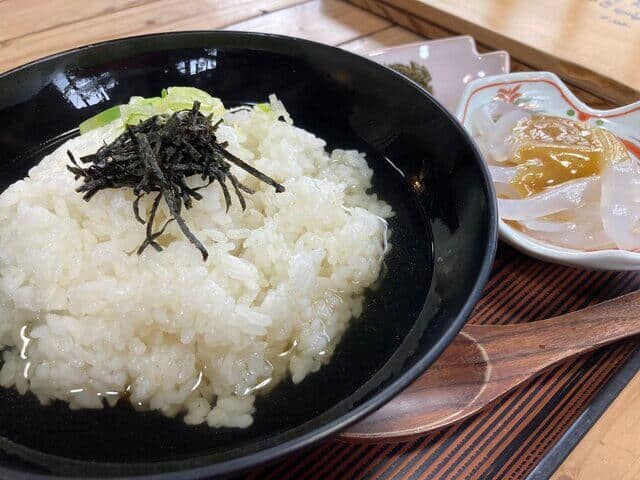
Wasabi is a root vegetable known in English as Japanese horseradish. It is most famous in the grated form of a green paste used as a condiment for sashimi (raw seafood) and sushi. In supermarkets, wasabi is widely available as a paste or in powder form. Wasabi powder has to be mixed with water to become a paste.
HOW MANY CALORIES DOES 1 SERVING OF UZUME MESHI HAS?
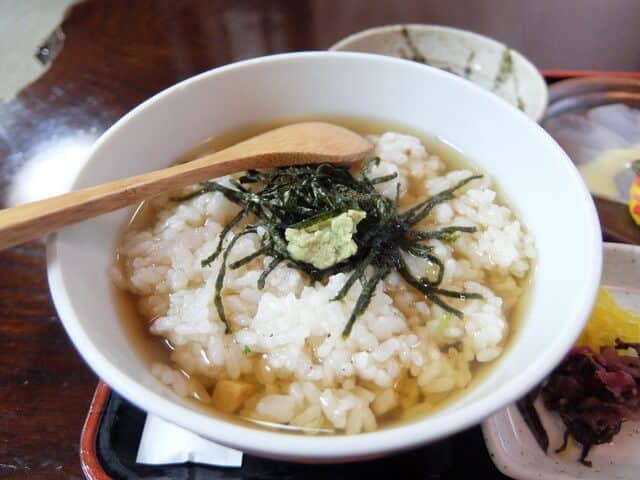
The calorie content of Uzume rice is 308 kcal per large bowl (427.3 g). Calories and nutrition vary depending on the ratio of rice and ingredients, but since it is rice, it contains the most carbohydrates.
RECOMMENDED UZUME MESHI RESTAURANTS
Kyodo Ryori Yuki
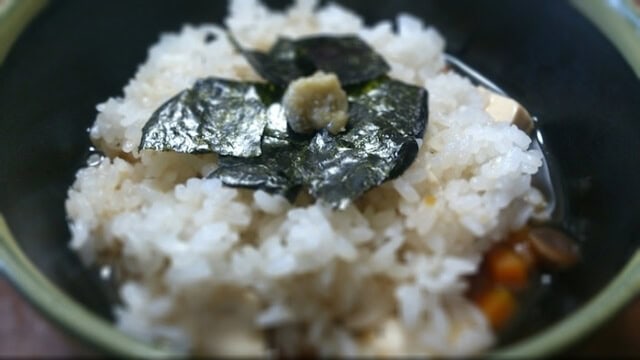
If you are near the JR Tsuwano Station and want to have some rice bowl dishes, you can look for a Kyodo Ryori Yuki restaurant. The shop’s location is about 5 minutes on foot from JR Tsuwano Station. The restaurant has a Japanese atmosphere. It is a recommended restaurant where you can enjoy local cuisine using river fish and wild plants in a relaxed mood.
Kyodo Ryori Yuki has a set meal of Uzume meshi. Their Uzume meshi contains carrots and shiitake mushrooms. Still, in addition to that, the set of Uzume meshi includes a simmered dishes, vinegared miso konjac, and yuba.
Furusato Shokudo
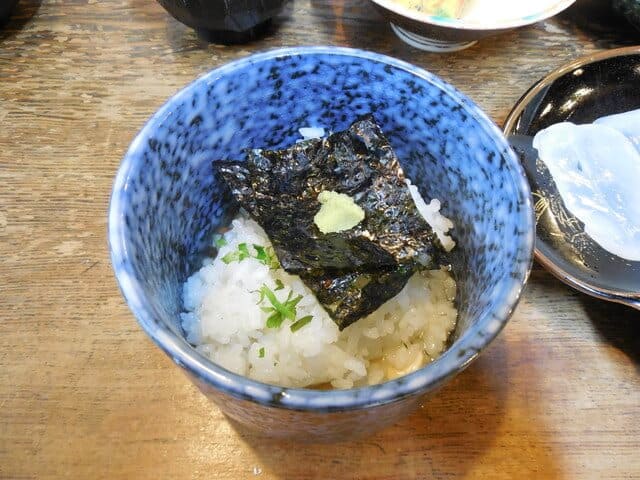
Furusato Shokudo is a Japanese-style restaurant located along the tourist street near Tsuwano Station. You can have a relaxed meal with a Japanese-style restaurant atmosphere both in appearance and its interior. They serve Uzume meshi set on the menu, and it has a slightly thick soup stock and a delicious and flavorful taste.
Saranoki Honten
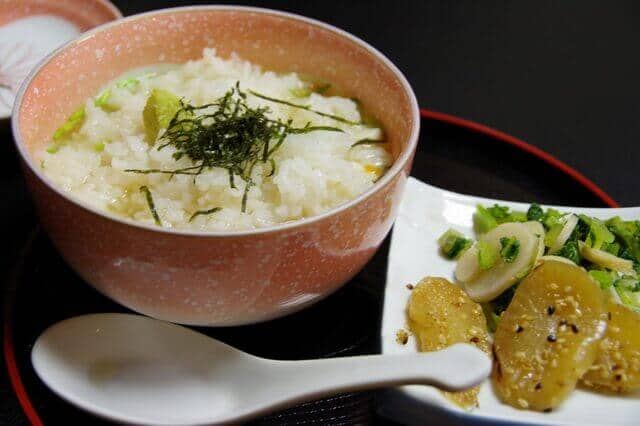
Saranoki Honten is a restaurant where you can enjoy a mix of Japanese and Western dishes. Uzume meshi is also famous as a delicious dish in the restaurant. It is a chain store from several stores in the prefecture. The Uzume meshi version of the shop contains carrots, tofu, shiitake mushrooms, and trefoil.
Tsuwano no Yado Yoshinoya
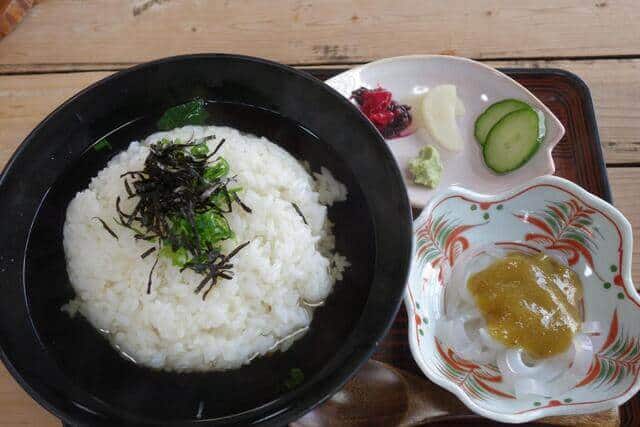
Tsuwano no Yado Yoshinoya is about 7 minutes on foot (500 meters away) from Tsuwano Station on the JR Yamaguchi Line. You can stay here overnight. You can also enjoy Tsuwano’s local gourmet Uzume meshi at an inn with a calm atmosphere. At Tsuwano no Yado Yoshinoya, they hide the ingredients of Uzume meshi under the rice, and plenty of chopped seaweed is on top of it. It is a ryokan or a Japanese-style inn, and it is pretty popular.
CONCLUSION
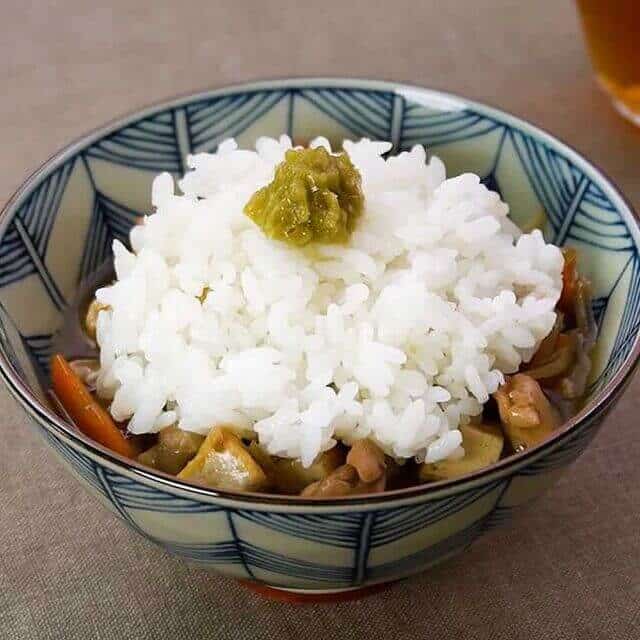
Knowing that its geography heavily influenced ancient Japan’s diet as an archipelago, foodstuffs and eating habits imported from mainland Asia, religious beliefs, and an appreciation for dishes’ aesthetic appearance, not just the taste. In a typical Japanese meal, a bowl of rice serve with side dishes for variety and flavor. Accordingly, they steamed and lightly seasoned the daily rice served with meals. Japanese cook and serve rice with different spices and adding delicacies to make it more nutritious. Smaller plates and varied plates naturally diversify the foods to eat and practice portion control.
Historically, Uzume meshi has a strong image of being a typical dish, but it became a hospitality dish and served at banquets. While it has a strong impact as a local dish, it is attractive because everyone will likely enjoy it. You can easily make it at home, so give it a try.
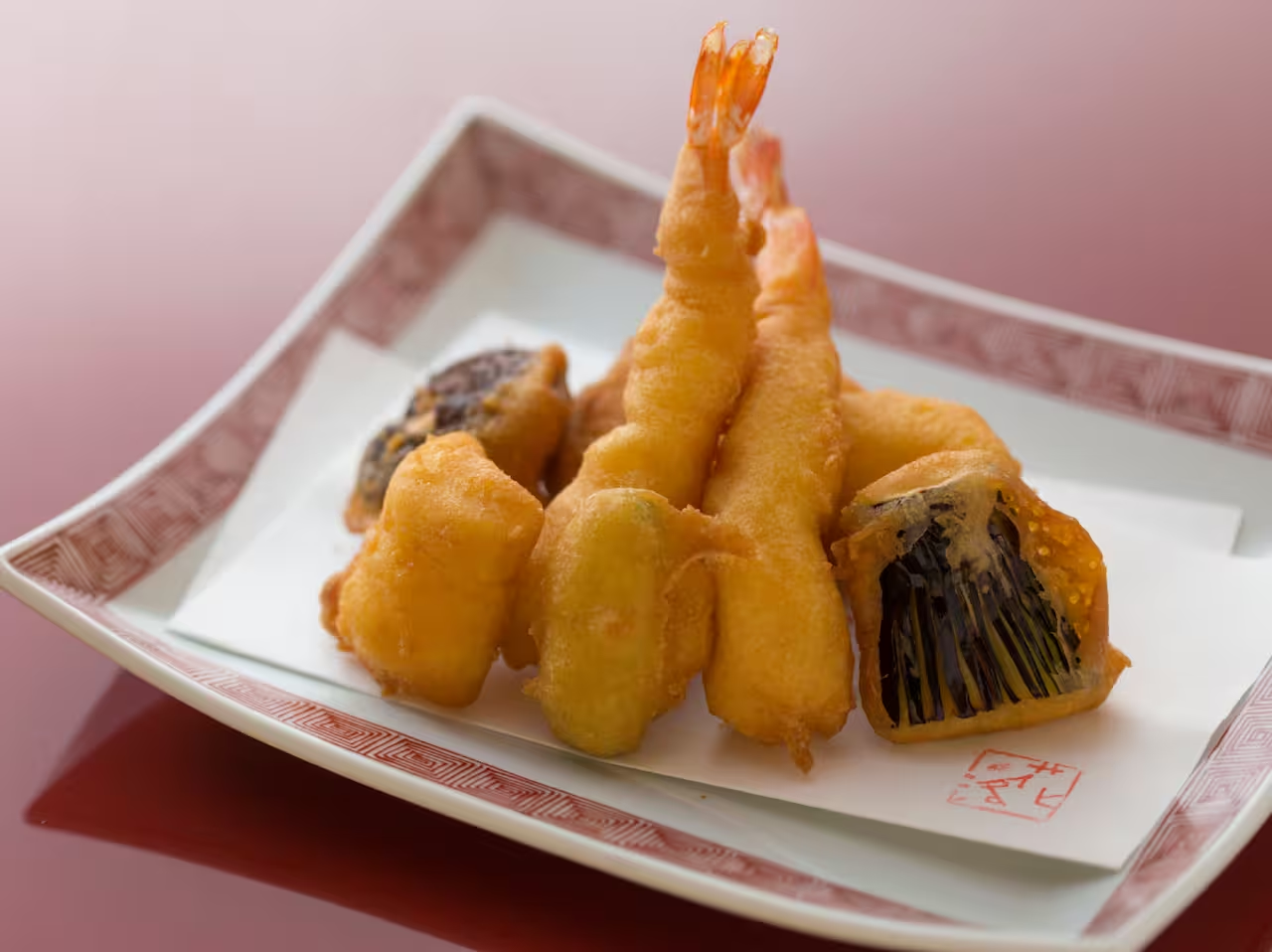
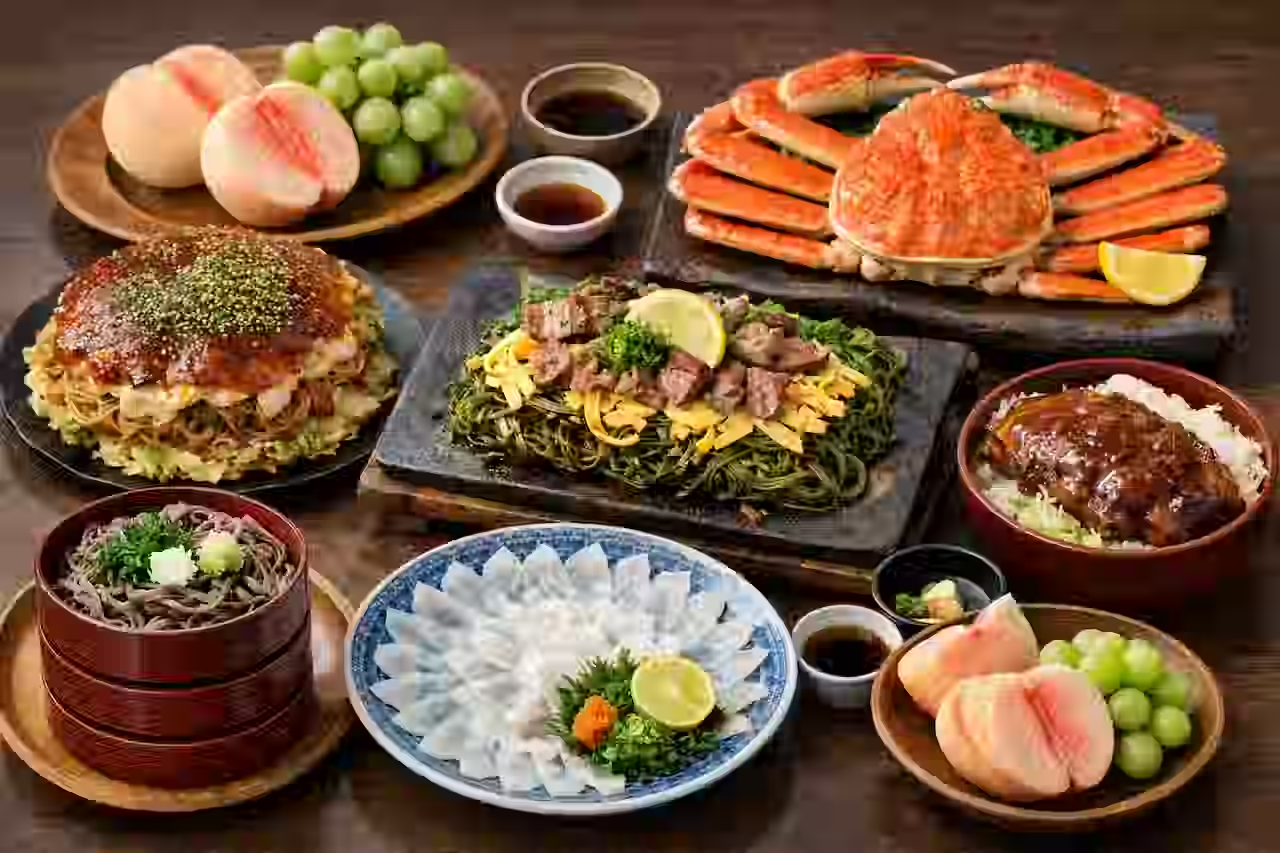
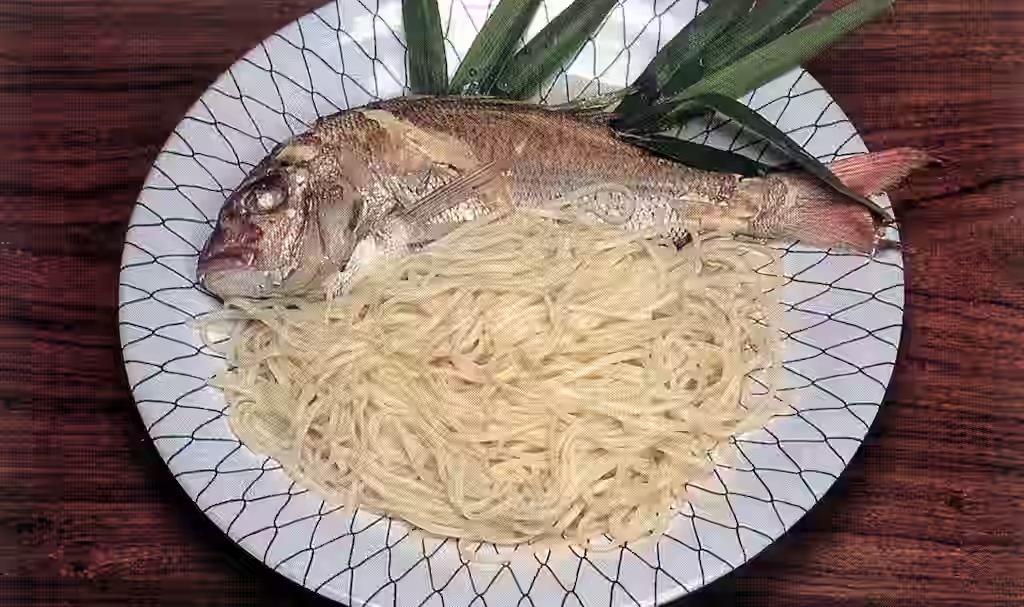

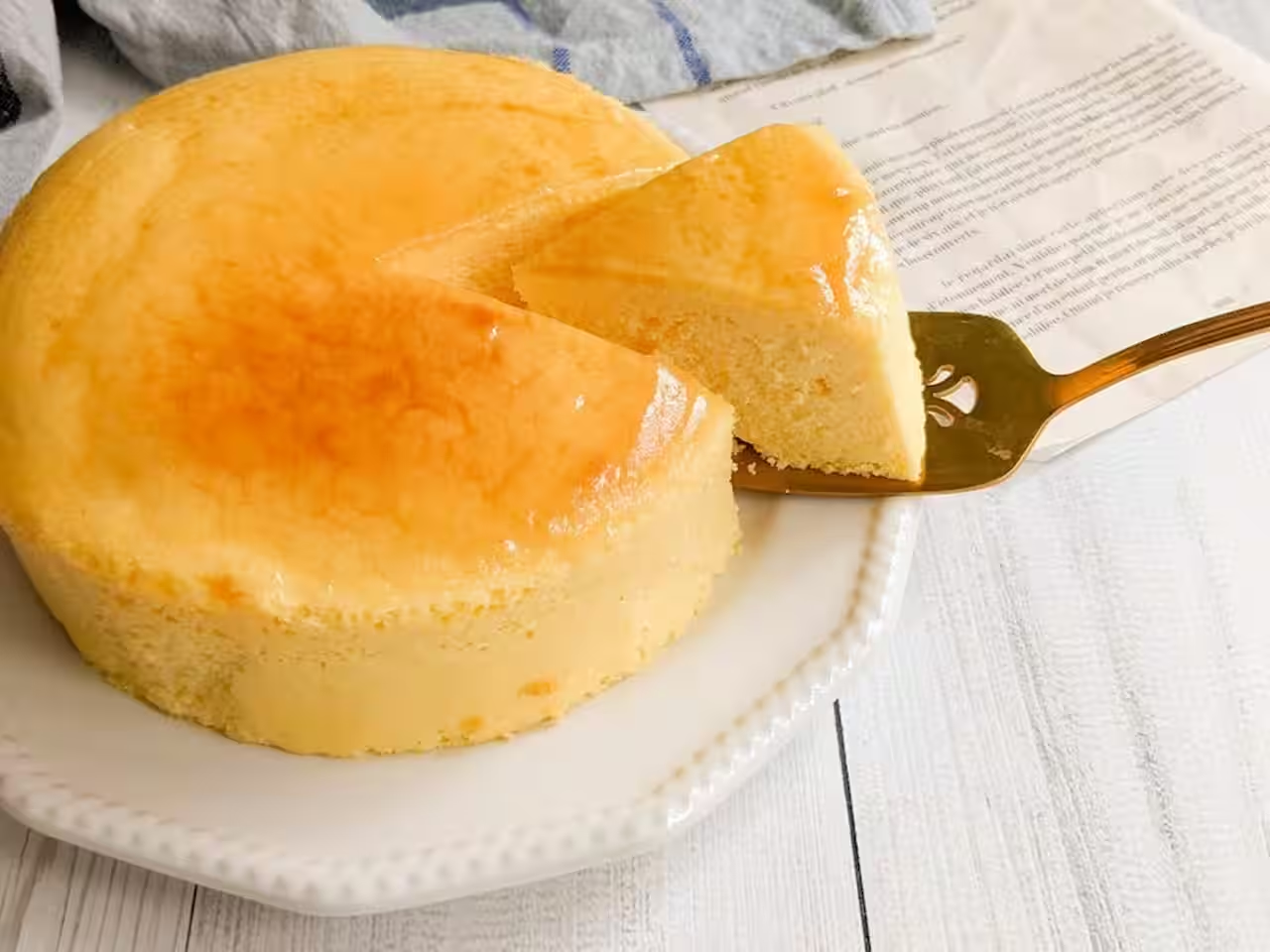

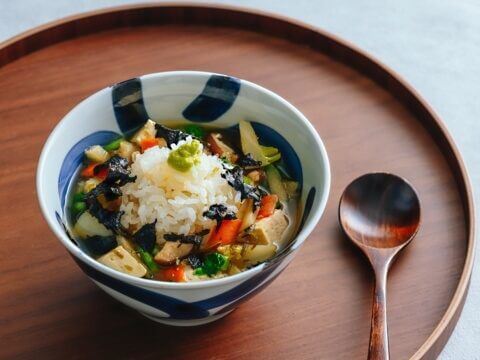
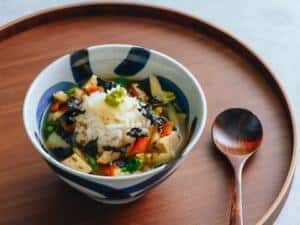
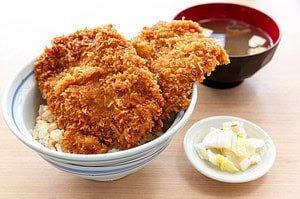
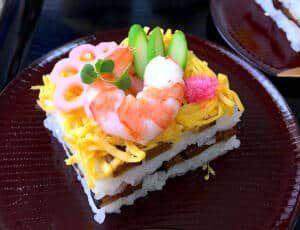

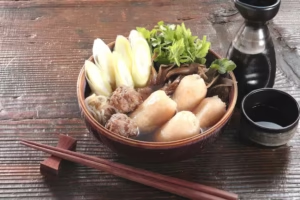
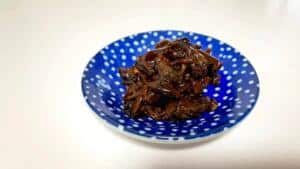
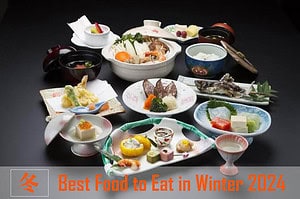

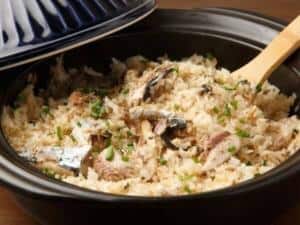
Comments